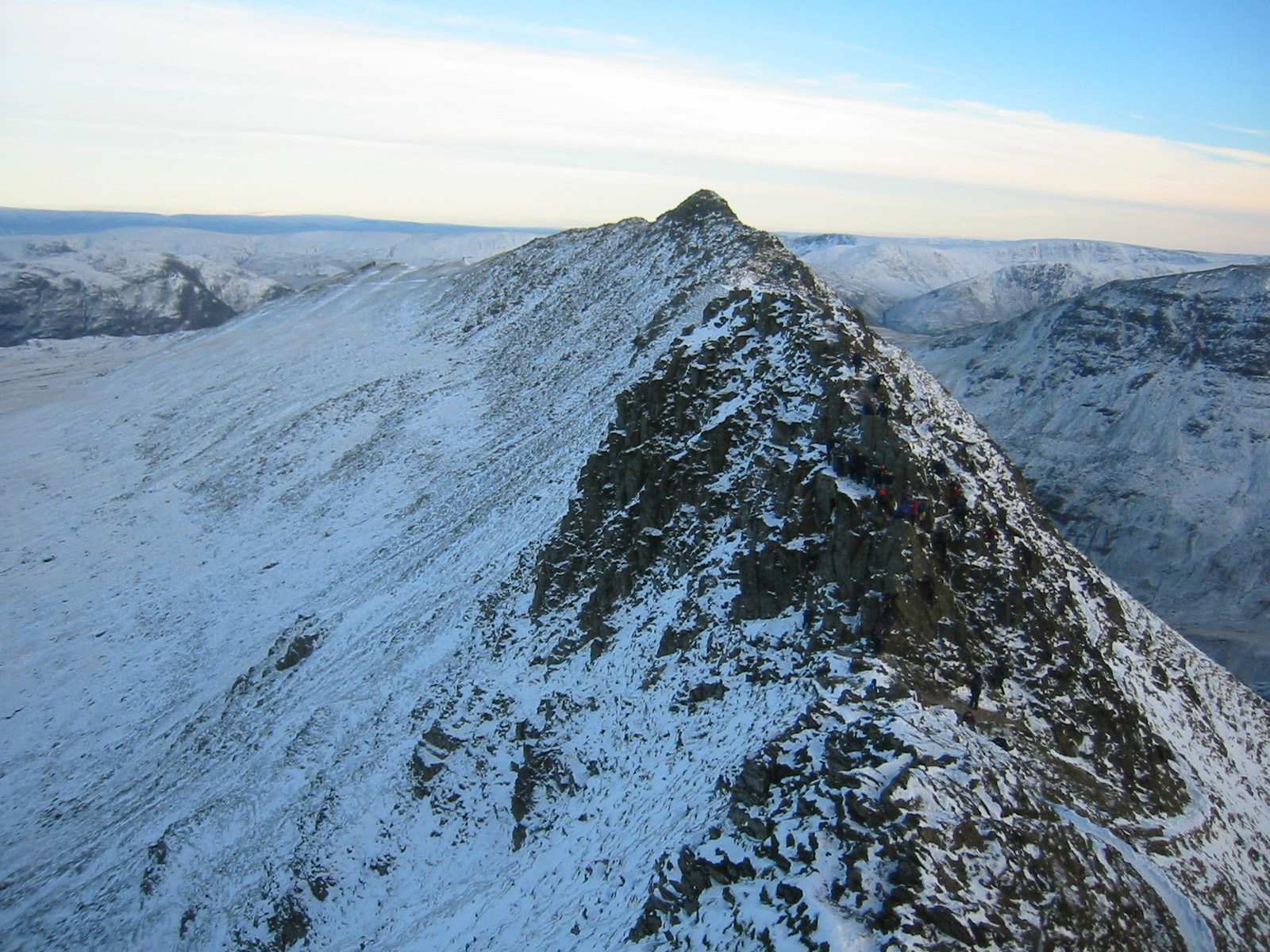 English national park authorities’ financial fears were assuaged this week with the announcement by the Government of more than £46m-worth of cash for the areas next year.
English national park authorities’ financial fears were assuaged this week with the announcement by the Government of more than £46m-worth of cash for the areas next year.
Striding Edge in the Lake District national park. Rocky times were predicted if more cash was not forthcoming
The news was seen by many as the fruit of heavy lobbying by the parks. The Department for Food, Environment and Rural Affairs (Defra), which provides most of the cash for England’s national parks, is facing cuts of up to £270m, following a series of animal-disease crises, yet it still agreed to an inflation-linked hike for the nine parks, which cover the finest areas for outdoor pursuits in the country.
A spokesman for the English National Park Authorities Association (ENPAA) said: “The settlement will mean that the authorities can continue to protect some of our finest landscapes, contribute to tackling dangerous climate change, and ensure that the millions who visit are able to better appreciate these wonderful areas.”
Last month, grough reported that the North York Moors authority was facing job losses and cuts in its ranger service if it did not receive more money.
ENPAA director Paul Hamblin said: “We welcome the continued support shown for national parks by Hilary Benn [the Environment Secretary] and his ministerial team in what has been a very difficult financial climate.
“National parks are national treasures, visited by millions every year. The public overwhelmingly supports national parks and, with the decline in hill farming, the challenge posed by climate change, and the need to meet local needs for affordable housing, these funds will be in strong demand.
“The environment is taking centre stage in politics today. Year by year, the national park authorities are contributing important projects that help in the fight against dangerous climate change, that support rural communities, and protect the natural environment. But often this can only be achieved through working with partners and other environmental agencies. And so it is a worry that given the challenges ahead, Defra has had to make such difficult decisions and the environment budgets of other agencies are under sustained pressure.”
7.6 per cent of England is covered by a national park. The Peak District, one of the first to be established and the home of the historic battle for walkers’ access to the moors and fells, receives the biggest Defra grant – currently £7.9m. This will rise to £8.7m by 2011.
Overall, the national-park grant bill for Defra will rise from the present £44.3m to £48.9m in three years’ time.
Carl Lis, chairman of the Yorkshire Dales National Park Authority, said: “We are very pleased with the settlement, especially as we were faced at one point with what we thought was going to be a standstill award with zero growth.
“In addition, the fact we have a three-year settlement will enable us to plan our work with more certainty.
“The increase in growth money is a credit to the effective lobbying that was carried out by the family of national parks and it is a recognition by the Government of the invaluable contribution that the work of the National Parks can bring to society as a whole.”
Nigel Hoskin, chairman of the Dartmoor authority, said: “I would like to thank the minister, Jonathan Shaw, for supporting the cause of national parks with his fellow ministers, in what we know has been a difficult spending round for Defra.
“This is a good announcement for Dartmoor and a tremendous fillip to the management of this internationally important landscape. It has been announced at an opportune time as we are just about to launch the new management plan for Dartmoor national park and the funding will help us to tackle the significant challenges we face: climate change, the future of upland farming, sustaining our communities and providing opportunities for all people to enjoy the national park.”
Mr Shaw said that national parks are not just beautiful and historic parts of the countryside, but places where people want to live and work.
The Council for National Parks, a charity supporting the work of the parks, also welcomed the increase in funding.